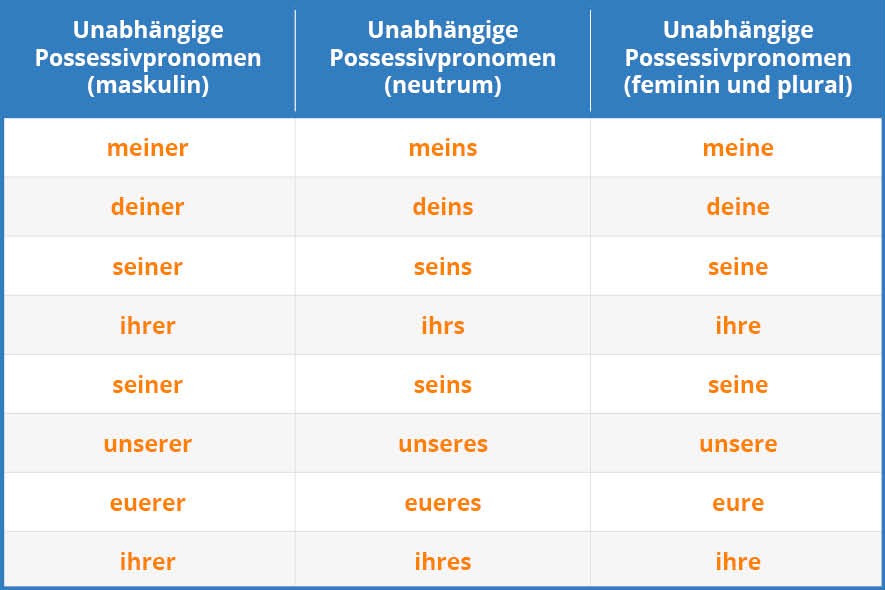The German Nominative
Der Nominativ im Deutschen – Erklärungen und Beispiele
The German Nominative – Summary
Zusammenfassung
The nominative is one of the four grammatical cases in German. It is used for nouns which represent the subject of a sentence, so the element that does the action. So, the nominative is the basic form of a noun, also used for nouns in the following roles in a sentence:
As a subject in a sentence
- “Der Hund liegt im Garten.”
- “Den Hund hat der Junge zum Namenstag bekommen.”
- “Der Hund will Rennen laufen.”
As a predicate noun
- These nouns follow after certain verbs. These verbs are often”sein, werden, bleiben”. And these nouns are in the nominative. As already mentioned, these nouns do not represent the subject of the sentence, but the predicate.
Well, as you have clicked on this article, I suppose that you are ready to study everything about a basic, essential topic in German grammar, the German nominative. Well, many of you might know this basic German pronoun, as it is quite similar to the nominative in the English language. But, of course, the German pronouns in the nominative case have different forms in German.
Well, in the following, I’d like to describe the term of the German nominative and also talk about its correct usage. After that, we will talk about the two different types of German nominative pronouns, the dependent and independent possessive pronouns. In addition, I’d like to present you a list of these two types of pronouns.
And now, let’s not lose too much time and come to the first topic of this article – the description and correct usage of the German nominative. Auf geht’s!
The Description and Correct Usage of German Nominative
Die Beschreibung und korrekte Anwenung des Nominativs im Deutschen
Well, let’s have a look at the first topic of this article. Now, I’d like to give you a short description of the German nominative, and we will also clear up how to use this German case in the correct way. So, please keep in mind this description:
The German nominative is the basic form of the pronoun. Furthermore, the subject of a sentece is in the nominative case.
So, in order to find the subject, we can ask “Wer/Was” – “who/what” is performing this action? Have a look at the following examples to understand what I mean by the description above.
- “Philip hat einen Hund. Er hat ihn sehr gerne. Er liebt seine nasse Nase und er die Knochen die er bekommt.”
The Correct Usage of the German Nominative
Well, in the following, I’d like to name some things that you should keep in mind when using the German pronouns in the nominative case.
- First, the personal pronouns replace an already known or previously mentioned noun.
“Philip hat einen Hund. Er hat ihn sehr gerne.” - Second, dependent possessive pronouns can come with a noun, whereas independent possessive pronouns replace a noun.
“Er liebt seine nasse Nase.”
Now, as we have cleared up how to use the German nominative in the correct way, let’s go into some detail and talk about the German pronouns in the nominative case.
Pronouns in German Nominative Case
Deutsche Pronomen im Nominativ
So, as already mentioned, I’d like to show you a list of the pronouns in the German nominative case. First, we will have a look at German personal pronouns and dependent possessive pronouns. By the way, the forms presented in the table are also valid for the German accusative case.
Personal Pronouns and Dependent Possessive Pronouns

Now, I’d like to present you another table which shows the independent possessive pronouns in the German nominative case. Of course, the table provides an overview of masculine, neuter, feminine and plural independent possessive pronouns in the nominative.
Independent Possessive Pronouns

Please, note that even though we can ask for possessive pronouns in German nominative case with the question “Whose?” we should not think that it’s going to be in the genitive. So, when questioning the case, we always have to pay attention to the noun, too.
Exercises
Übungen
Finally, we have reached the last part of this article where you can prove the German skills you have just learned. In the following you will see some phrases that you should complete with the correct terms. Once you have filled all the gaps, just click on the “correct” button and you can see your errors and the correct results. Good luck and… auf Wiedersehen!



